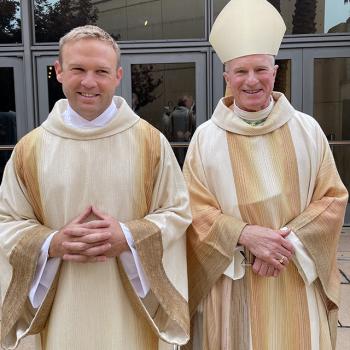Editors' Note: This article is part of the Patheos Public Square on Faith and Reason. Read other perspectives here.
Faith and reason have had an unsettled relationship in Christianity almost from the beginning, starting with Paul's contention in First Corinthians that God's foolishness is wiser than human wisdom. Tertullian's oft-cited (and just as often misunderstood) challenge, "What has Athens to do with Jerusalem?" represented one side of the debate, and Thomas Aquinas, who insisted that grace and faith don't destroy nature and reason but perfect them, was the champion for the other. Immanuel Kant and others gave the argument a new spin when they located the essence of faith within the dictates of what they claimed was "pure reason," a position that Karl Barth vigorously contested.
The dispute hasn't abated since then, but matters have become a bit more complicated recently, with both reason and faith falling on hard times. Faith, at least as it has been traditionally understood in the Christian community, is being displaced in many quarters by "spirituality," a kind of do-it-yourself connection with, well, with something "spiritual." Reason has suffered a similar fate, and not just at the hands of postmodernists. Emotivist rhetoric is rapidly replacing rational inquiry, particularly in religious circles. A prominent figure in the next generation of evangelicals was quoted in a recent newspaper article that though some may come to faith through logic, "we're people of feelings and we just want to know we're loved." Others complain that they are intimidated by reason and feel that it deprives them of their ability to speak.
In such circumstances Christians must carefully rethink what constitutes a sound relationship between faith and reason. For its part, faith lives from the self-disclosure of God in Christ as it is communicated to us through scripture and tradition. This revelation is not the delivery of extra-worldly truths unsullied by association with the all-too-human powers of reason. This has never been a helpful way of thinking about how God acts in our midst, and it certainly doesn't reflect the particularity and concreteness of the incarnation.
When we talk about faith in relation to reason we naturally focus on its cognitive aspect, but this isn't its only or most significant dimension. As Augustine noted, to believe in God is ultimately to love, delight in, and draw near to God, and to become a member of the body of Christ. The cognitive aspect does contribute to this understanding of faith, for we can only love, delight in, and draw near to that which we know. At the same time, however, we can never reduce faith to a set of abstract beliefs to which someone gives mental assent.
We must also beware of faulty views of reason. In spite of what the enlightened among us claim, there is no such thing as "pure reason" untainted by the muck and roil of creaturely life. Its limits are not those of being itself, and it doesn't enable us to ascend some high mountain removed from the particularity and contingency of creaturely life to judge all the kingdoms of the world in an instant. And though some claim otherwise, the sciences aren't excluded from these constraints.
Put positively, reason is a socially embodied, historically extended activity involving the use of signs, principally language, enabling women and men to take in the natural and social world as world, that is, as an ordered, intelligible whole in which we live, move, and have our being. The rules, concepts, principles, and systems we formulate and refine are not timeless, but partake of communal practices and social projects for which they form the working cross-sections. As we progress from evidence to conclusion, from ends sought to means for seeking them, from accepted principles to ideas being proposed for consideration, our reason casts all that we encounter into an intelligible form, which takes us across the threshold between existing in an environment and having a world in which we move about in creaturely freedom.
In relation to faith, our ability to reason performs several vital functions. When scripture raises important questions but doesn't provide explicit answers, for example, the nature of the relationship of the Son to the Father, it is reason that made it possible for our ancestors to situate the biblical witness in a trinitarian frame of reference. And though reason can't demonstrate conclusively the truth, goodness, and beauty of God's self-disclosure to those who completely reject revelation, it can effectively show how objections to Christian claims about God don't disprove our convictions.
The most frequent use of reason in our day-to-day pilgrimage of faith, and also the most imprecise, occurs when as followers of Christ we ask what should concern us in our time and place. The logic of historical existence means that we must respond to a distinct set of ethical challenges that are neither altogether different from nor identical to what our mothers and fathers faced in their times and places. In a given situation, Dietrich Bonhoeffer writes, "it is necessary to observe, weigh, evaluate, and decide, and to do all that with limited human understanding. We must have courage to look into the immediate future; we must seriously consider the consequences of our actions; and we must attempt seriously to examine our own motives and our own hearts." Neither faith nor reason stand alone in this difficult yet necessary process, but must work together as we both stand before God and seek to love our neighbors.
7/13/2016 4:00:00 AM




